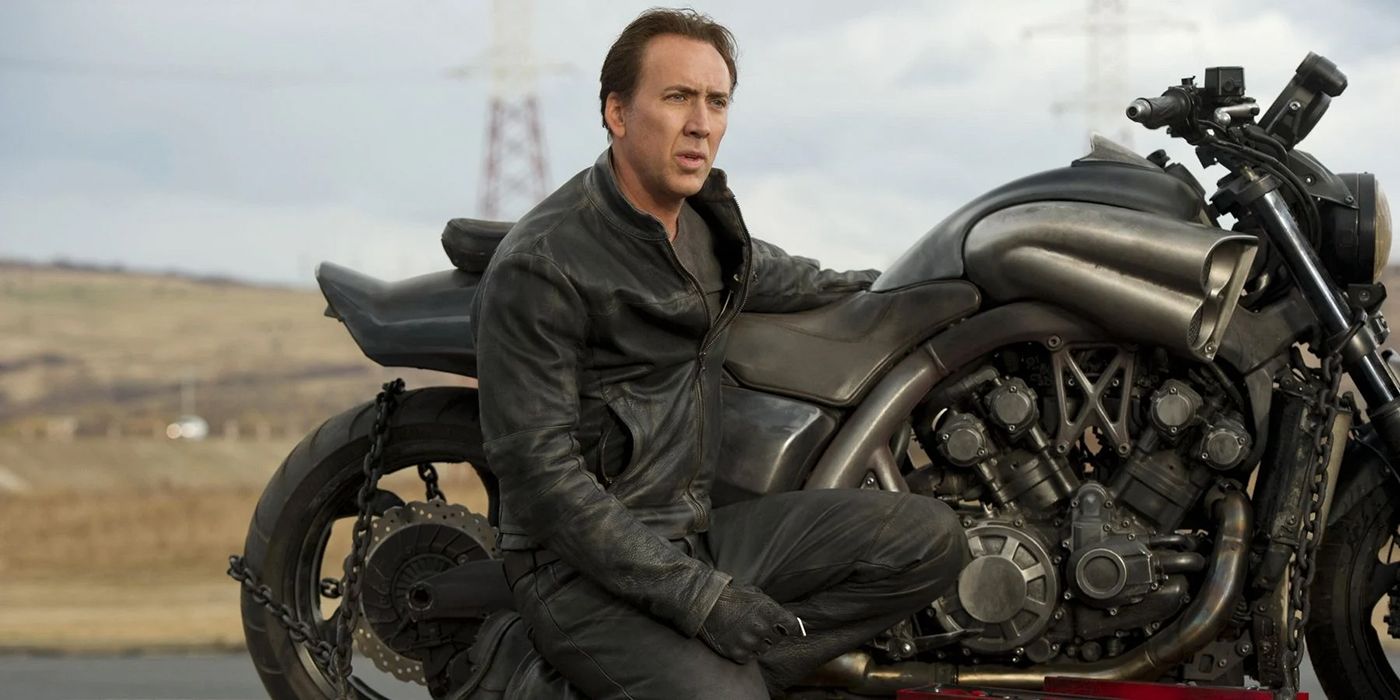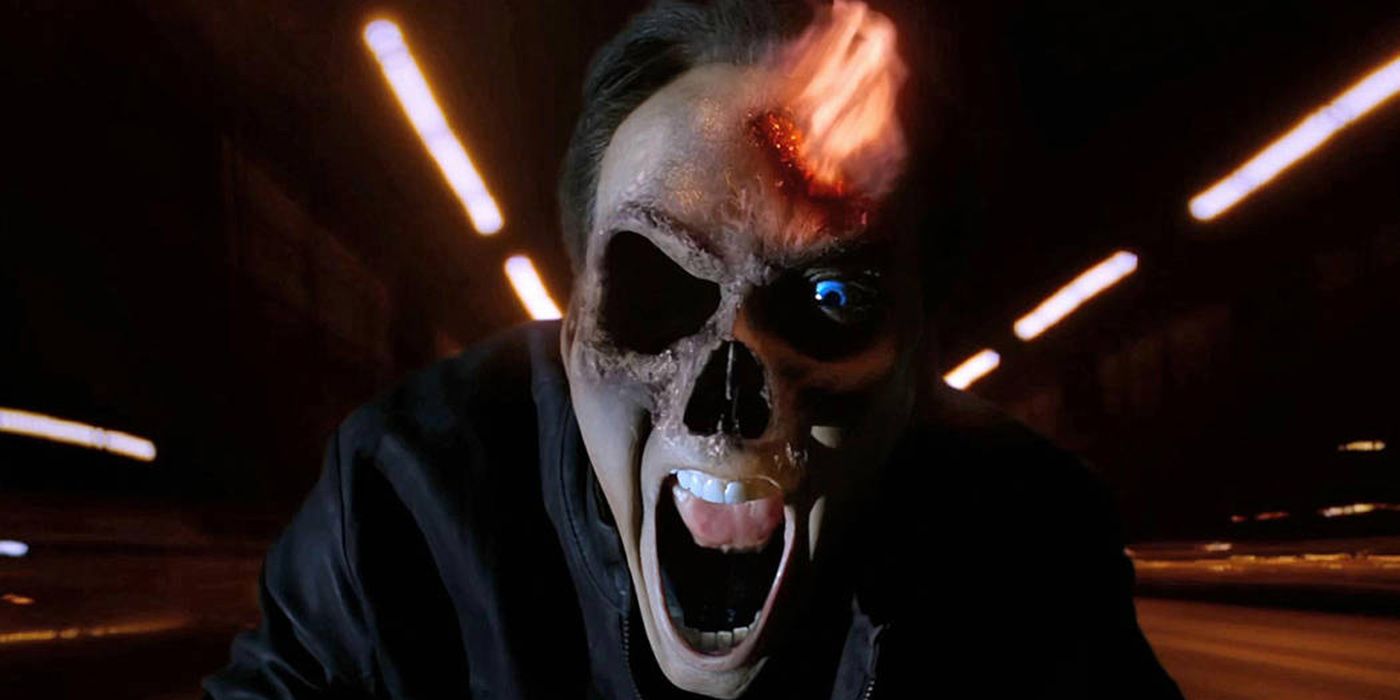Nicolas Cage opens up about why he took smaller, weirder roles after the disappointing responses to his Ghost Rider movies and other tentpoles. Cage first brought the Marvel hero to life in the eponymous 2007 film exploring the origins of stunt motorcycle rider Johnny Blaze as he signs over his soul to Mephistopheles in an effort to cure his father of his cancer, only for the demon to cause his father's death anyway and transforms him into the demonic soul hunter known as the Ghost Rider. Written and directed by Mark Steven Johnson, who previously wrote and directed the Ben Affleck-led Daredevil movie, Ghost Rider hit theaters to generally negative reviews from critics for its threadbare plot, poor screenplay and reliance on CGI.
Despite the poor reviews, Ghost Rider proved to be a commercial hit, grossing over $228 million against its $110 million budget, leading to a sequel with Cage returning while Crank duo Neveldine/Taylor took over directing duties and Scott M. Gimple, Seth Hoffman and David S. Goyer penned the script. Ghost Rider: Spirit of Vengeance hit theaters in 2012 to a worse critical reception than its predecessor, with its poor CGI, worse script and hammy performances receiving widespread criticism. Though a third installment was considered prior to its release, the film's poor critical and commercial reception and Cage's disinterest in returning led to the cancellation of the franchise and the rights to the Ghost Rider character reverting to Marvel Studios.
In a recent career-spanning feature with The Hollywood Reporter, Nicolas Cage reflected on his blockbuster stardom and brief departure from larger scale films. Cage looked towards the period of his Ghost Rider movies, recalling the disappointing responses to them and his other major tentpoles at the time and how, paired with his interest in philosophy, resulted in him stepping away to take smaller and weirder roles. See what Cage shared below:
"I started reading a lot of philosophy. I stopped being interested in going to awards shows and selling myself. I made a decision to pursue a life of contemplation. And simultaneously, I had movies like Sorcerer’s Apprentice and Ghost Rider and Drive Angry -- three in a row that didn’t work out. There was this marginalization that happened while I was also more interested in philosophy and meditating. So those two things happened at once."
Interestingly, Ghost Rider wasn't Cage's first effort to break out into the superhero genre after having previously been attached the Tim Burton's Superman Lives, which was infamously scrapped after numerous creative differences between the director and Warner Bros. and an ever-ballooning budget and rewrites. The cancelled comic book movie came at the time Cage, a notable comic book fan, was in his height as a leading man in Hollywood, having won an Oscar for his work in Leaving Las Vegas and starring in the hit blockbusters The Rock, Con Air and Face/Off. Given the critical and commercial disappointments of the Ghost Rider films, as well as The Sorcerer's Apprentice and Drive Angry as the actor mentions, it's understandable Cage would elect to step away from major tentpole filmmaking to return to the more eccentric performances that he originally rose to stardom for.
Despite this initial departure after the Ghost Rider movies, Cage would return to the superhero genre twice in 2018 alone for both Teen Titans Go! To The Movies, in which he finally got to play Superman, and Spider-Man: Into the Spider-Verse, for which he voiced Spider-Man Noir to rave reviews. Though having starred in a number of direct-to-video duds over the past decade, Cage has been enjoying a career revival over the past few years, namely with his acclaimed turn in the crime drama Pig. Cage will be going even further out for his next effort as he plays a fictionalized version of himself in The Unbearable Weight of Massive Talent, which hits theaters on April 22.
Source: THR


